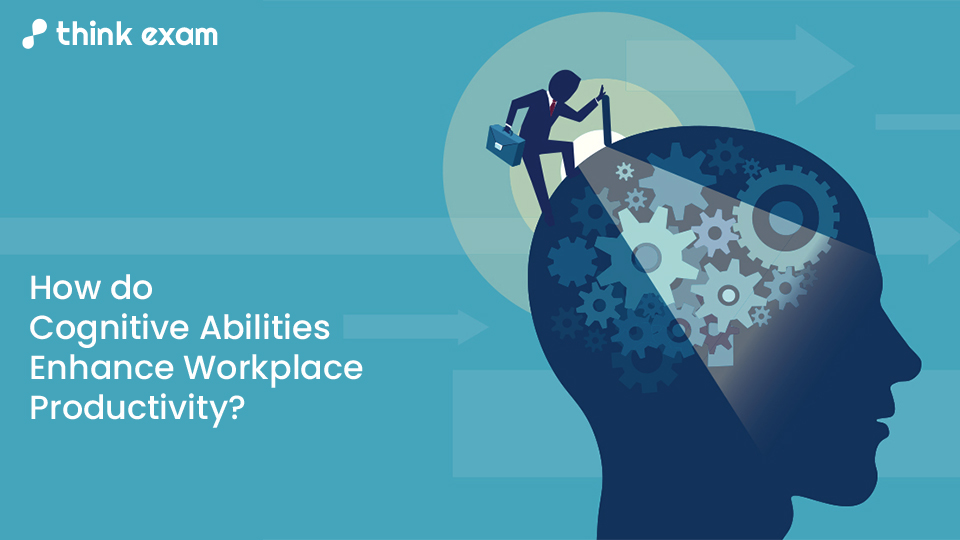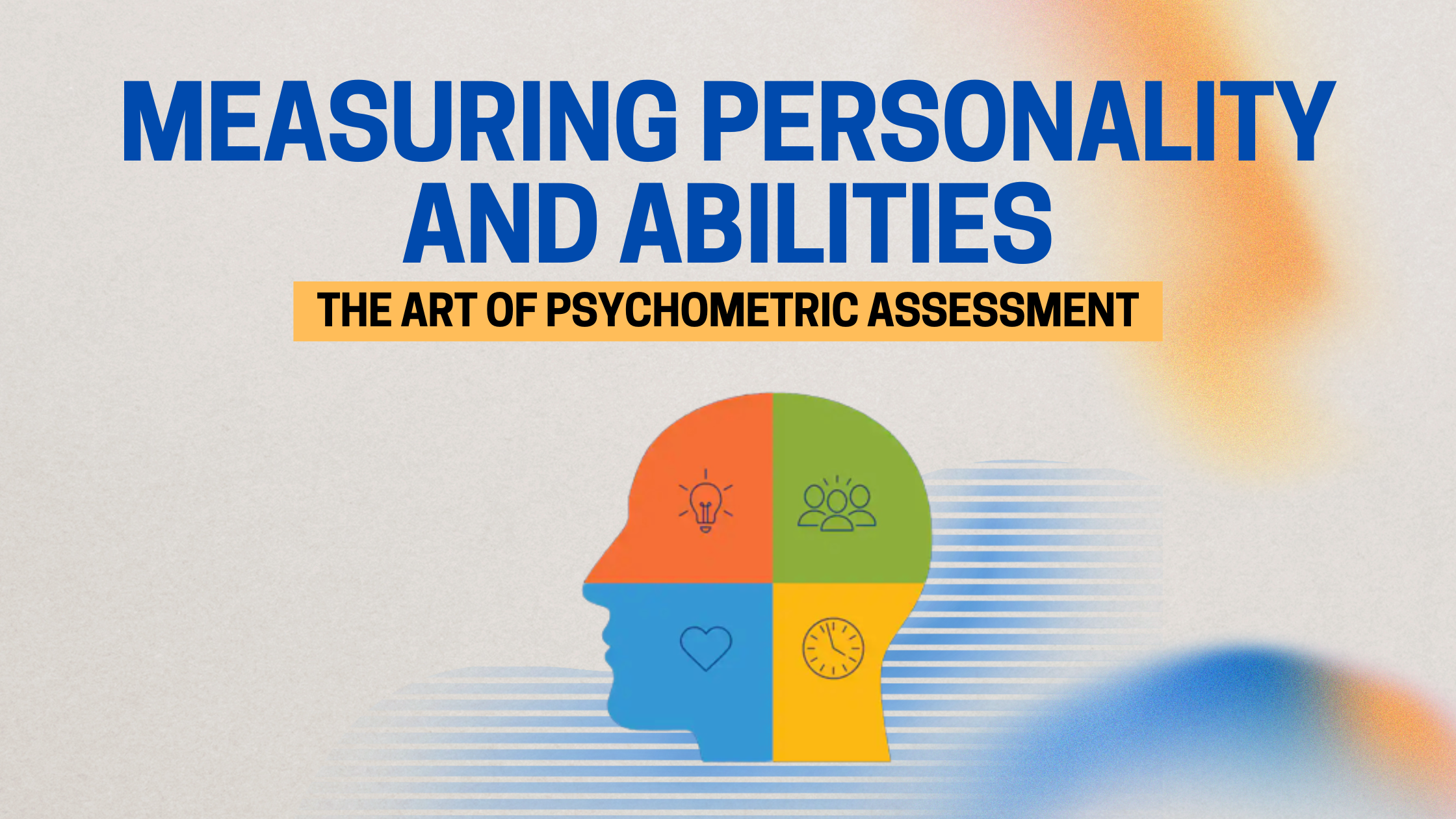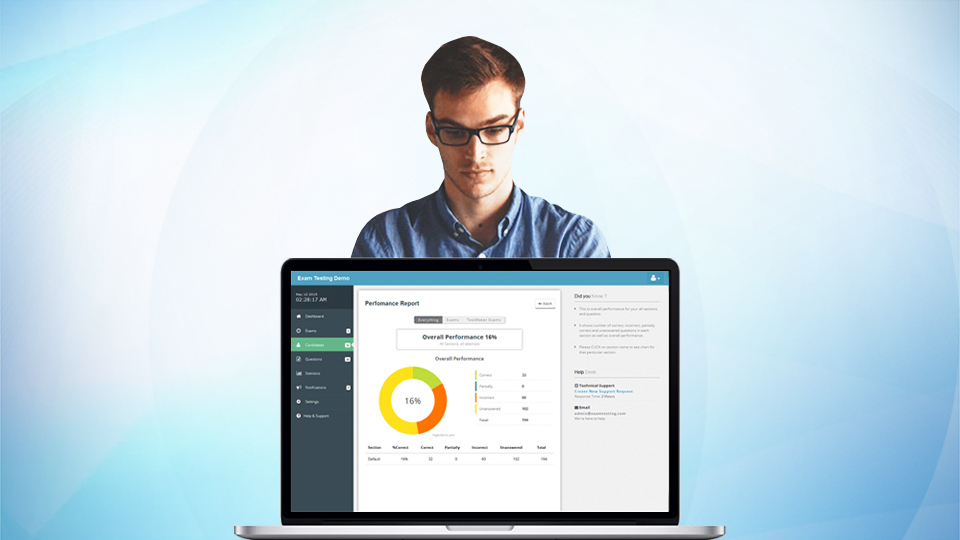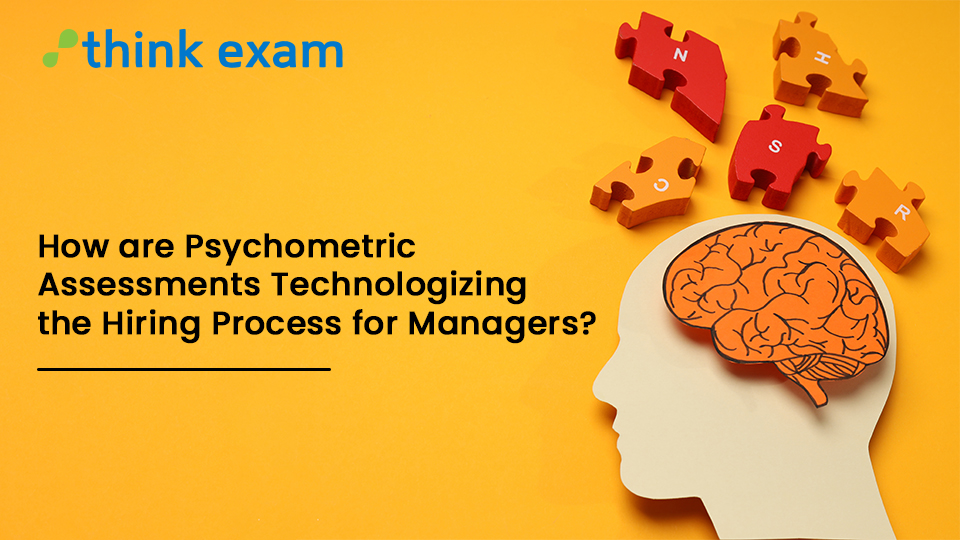Cognitive abilities empower the mind to think, process information, learn and make sound decisions. Employees with stronger cognitive abilities tend to be more efficient, effective, and innovative, leading to higher productivity levels. In this blog post, we will primarily explore how cognitive abilities enhance workplace productivity and how cognitive assessment tests from Think Exam can help businesses identify and build these abilities in their employees.
1. Sustained Attention – For Long-term Projects
Sustained attention is a cognitive ability that enables employees to remain focused and engaged in a task for an extended period. It is an essential skill in the workplace as it ensures the efficient and effective completion of tasks, even if there are multiple revisions. With sustained attention, employees can maintain motivation and drive until a task is finished, making it useful for achieving long-term goals.
This specific ability is imperative for success in creative roles like that of programmers, novelists, visionaries, and managers responsible for achieving long-term organizational goals. Think Exam’s psychometric assessments for recruitment can help businesses identify how well each candidate would perform in long-term projects that require sustained attention.
2. Divided Attention – For Multi-tasking Roles
Divided attention is another crucial cognitive ability that enables individuals to perform multiple related tasks without making errors. This skill allows individuals to focus on their primary tasks while keeping the necessary details of other tasks in mind. A strong divided-attention skill can reduce mistakes and make multitasking less stressful, thereby improving productivity in the workplace.
Mastering divided attention is essential for employees working in knowledge work jobs that require multitasking regularly. By identifying employees with strong divided-attention skills, businesses can optimize their workforce and achieve their goals. Our online aptitude tests help employers assess the divided-attention skill level of their employees accurately. Such assessment can help make informed decisions when assigning tasks and roles, leading to increased efficiency and productivity.
3. Selective Attention – For Distracting Work Environments
Selective attention is necessary for distracting work environments. It enables employees to concentrate on a single task, disregarding any surrounding distractions. Selective attention also assists in decision-making, as it allows individuals to choose where to direct their attention among several options. For instance, one may decide to complete a report before responding to emails or engaging in conversations with co-workers.
Cognitive assessment tests that we offer can help businesses evaluate an employee’s selective attention skills. Based on the results, employers can implement training programs and other strategies to enhance the selective attention skills of their employees. Employees with robust selective attention skills are less likely to get distracted easily, as they are more likely to remain focused on tasks and achieve better outcomes.
4. Working Memory – For Complex Projects
Working memory, or short-term memory, is the capacity of individuals to temporarily store and manipulate information needed for their current task. A strong working memory is particularly useful for employees working on complex tasks that require them to remember and apply multiple instructions or concepts at once. For example, programmers may need to hold several lines of code in their minds while simultaneously figuring out how they fit together.
Our online aptitude tests come with comprehensive reports that provide an objective and reliable measure of an employee’s working memory. They also help businesses identify factors that affect the working memory of employees. Using this information, businesses can optimize their teams and institute work practices like memory-boosting activities, practicing mindfulness, etc., that can help improve overall performance.
5. Long-term Memory – For Retention of Information
Long-term memory refers to the ability of employees to remember information from the past. This ability finds specific application in the role of managers and customer relations executives as they can retain knowledge related to prior interactions with employees and customers. Whether it is recalling the name of a colleague or the details of a meeting from years ago, a strong long-term memory enables employees to apply past learning to their current work.
Think Exam’s advanced psychometric assessments provide businesses with valuable insights into their employees’ potential for long-term retention of information. These insights help optimize recruitment, promote employee growth and retention, and enhance training programs for roles that require strong long-term memory. They also help easily identify high-performing employees and develop strategies to retain them while also identifying areas for improvement in your current workforce.
6. Processing Speed – For Short Deadlines
Having a high processing speed allows your brain to interpret information swiftly and apply it to the task at hand. When you strengthen this skill, you can improve productivity in the workplace by completing tasks efficiently and effectively. For example, a high processing speed can help you identify and address customer needs promptly, leading to improved customer satisfaction and business performance.
Incorporating training programs for enhancing the processing abilities of employees using insights from our online aptitude tests can bring significant benefits, including faster response times, better decision-making, and increased efficiency. By investing in the development of this essential application of cognitive ability, you can help your team perform their best.
7. Visual Processing – For Data Accurate Interpretation
Visual processing is an often-overlooked cognitive ability that contributes significantly to workplace productivity. It empowers individuals to interpret data accurately. In a practical sense, this ability enhances the quality of proofreading documents, analyzing designs, interpreting data presented in different forms like tables, graphs, charts, surveys, etc. Such skills are critical to the creation of strategies and the assessment of the performance of these strategies.
Our cognitive assessment tests have been used by businesses as an exercise to sharpen the visual processing of their employees. We curate each question in the assessment to specifically cater to the purpose for which it is to be conducted. Some of these questions involve the interpretation of pictorial and numerical representation of data, comprehension questions, and completing sequences and patterns, etc. The more these tests are conducted, the more the visual processing skills of employees are sharpened so as to increase productivity.
8. Logic and Reasoning – For Efficient Solutions
Logic and reasoning allow employees to approach problems in a systematic and analytical manner, identifying the most efficient solutions quickly. For example, employees in customer relations roles can use their logical thinking abilities to identify customer needs and provide tailored solutions efficiently.
Employers can utilize our psychometric assessments to measure the deductive reasoning, inductive reasoning, and problem-solving skills of their employees. The comprehensive reports we provide can be helpful in identifying areas of strength and improvement in employees’ logic and reasoning abilities. By identifying these areas, employers can tailor training programs to enhance these cognitive abilities. This will, in turn, help businesses develop a highly skilled workforce that can enhance the company’s productivity and success.




